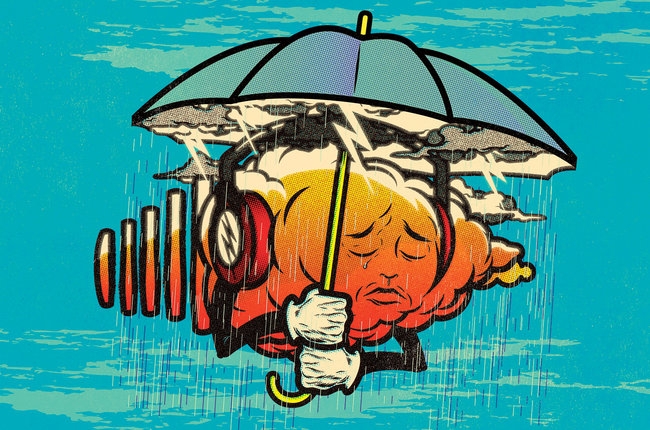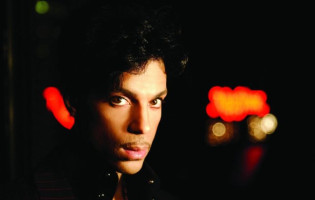Eleven years ago, when Alexander Ljung and Eric Wahlforss met as students at Sweden's KTH Royal Institute of Technology, they had three things in common: They were obsessive music geeks; they used Macintosh computers; and they felt MySpace was bloated and overly complicated, especially for musicians. In 2008, the duo launched SoundCloud, a nimble, easy-to-use platform for artists to share new tracks instantly -- and within months, Beck, Sonic Youth and Moby were on it, helping spread the service to 160,000 users.
Now reaching 175 million users globally, SoundCloud continues to drive music culture, helping break hits like Desiigner's "Panda" and spawning a grassroots, youth-oriented wing of hip-hop known as "SoundCloud rap." But due to a series of missteps, the German-based outfit is on life support, announcing 173 layoffs, drastic cost-cutting and consolidation of its offices into Berlin and New York on July 6. Ljung insists the company is "on our path to profitability," having secured a $70 million round of credit in March, but expenses have dwarfed revenue growth for years, and artists and labels are looking for alternative ways to share free music quickly and easily.
Still, loyalists aren't counting the service out yet, with potential buyers such as Deezer in the wings, sources say. "I'm working on the SoundCloud thing," Chance the Rapper tweeted July 13, saying he had spoken with Ljung and was optimistic about the company's future, valued in 2014 at $700 million. Now, though one analyst estimates its value at half that sum, a label executive says he remains "bullish on SoundCloud," noting that its "DJ sets and hip-hop mixtapes are not available" elsewhere.
"They fulfill a very important niche in the music community," adds Ben Swanson, co-owner of Secretly Group. "It's our hope they find someone to acquire them or help them live another day."
As the punk rocker of the digital music world, SoundCloud grew quickly, reaching 10 million users by 2012. Allowing musicians to post unfinished work, bonus tracks and remixes, it became "a place that you put music up because, 'Hey, here's a new track or idea,' " says Keith Jeffery of Australian pop duo Atlas Genius, which posted its first song, "Trojans," on the site in 2012, six months before signing with Warner Bros. Records. It fostered "an air of experimentation," adds Jeffery.
But SoundCloud, like many free-music services, started having problems when record companies began pressuring it to pay for the copyrighted music its users were uploading so enthusiastically. The major labels agreed not to sue over such copyright violations if SoundCloud sold ads and shared the revenue with them. SoundCloud signed a licensing deal with Warner Music Group in 2014, promising to launch a paid subscription service.
But Universal Music Group and Sony Music Entertainment weren't quite as anxious to strike deals, and at one point Sony yanked its biggest stars, such as Kelly Clarkson and Adele, due to what one executive told Billboard was "a lack of monetization opportunities."
Soon, artists began to complain. "A lot of friends were getting stuff deleted," says Diablo, a producer for Lil Pump, Smokepurpp and others in the Florida SoundCloud rap scene. "They were focusing on major labels and not catering to their artists; without us, there would be no SoundCloud. They're making millions of dollars off us."
Both Universal and Sony signed deals in early 2016, but by then, says a source at a major label, "they were way, way too late launching their subscription [service]." Spotify already had roughly 100 million monthly users, while Apple Music had 13 million paid subscribers.
"In the meantime, they hadn't really evolved, and some of the luster had come off the brand," the source continues. "It wasn't cool in quite the same way as it had been."
SoundCloud's $10-per-month SoundCloud Pro, which launched in March 2016, never got traction.
The free service also has its limits. Electronic duo XYLØ put out "America" in 2015, landing 1.6 million SoundCloud plays, but to graduate to pop stardom, the group will have to expand to a mainstream service. "SoundCloud is like junior varsity -- it's a great way to figure out if you're good at basketball, but the goal is the NBA," says XYLØ co-manager Matt Graham.
When XYLØ signed with The Chainsmokers' label, Disruptor, which is distributed by Sony, the imprint restricted what the band could post for free. "We want as much music out there as possible," says Graham, "but record labels need to monetize the music."
That tension has stifled SoundCloud's growth. "The whole company was built for independent artists, and now you're telling them: 'Most of your fans won't get this music; it's behind a paywall,' " says Chad "The Wolf" Taylor, manager for Childish Gambino, whose early mixtapes broke on SoundCloud before he signed with Glassnote Records in 2011. "There are barriers where there weren't before. That has made things difficult for them."
In recent years, as SoundCloud grew, it resembled established streaming services from Spotify to YouTube, which required resources to compete with. Like Pandora, the company became caught in the middle of a Napster-like, rebellious free service or a mainstream subscription company. "The investor community became increasingly skeptical," says the major-label source. "They're no longer darlings for the venture capitalists who are willing to give them the extra money." In 2014, company revenue grew 54 percent to nearly $20 million, but losses doubled, to $42 million.
The company has tried to expand in creative ways, from negotiating a sale to Spotify, which failed in December, to launching the recent "SoundCloud Next Wave" miniseries about music scenes in six cities. Some in the music business echo founder Ljung's rosy outlook, while a recently laid-off employee hinted SoundCloud might stop spending so much money on expensive things like new hires and branded headphones. (Some 30 laid-off employees listed in a widely circulated Google doc didn't respond to inquiries; one on LinkedIn said, "I'm not a snake.")
The most likely scenario remains an acquisition, though SoundCloud is unlikely to fetch $700 million and Spotify's interest has cooled. "It's a good service and will probably find a home," says the label source. "I just think it'll be at a fire-sale price."
This article originally appeared in the August 5 issue of Billboard.








